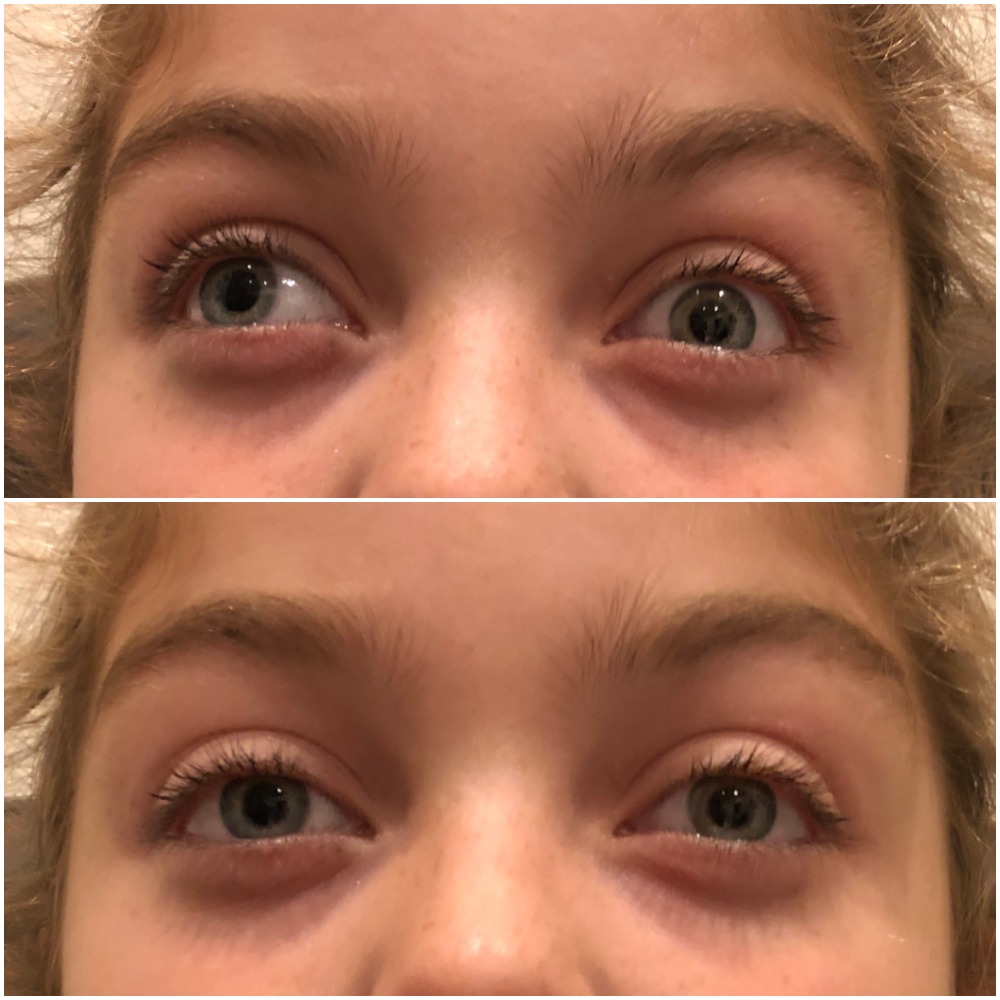M came to us because she was diagnosed with exotropia in her right eye, which means her right eye tended to drift out, so her eyes were not aligned. When M first started, she was unaware when this would happen, but when she was told by other people, she was able to fix it. She wanted to gain further awareness and control over her eye doing this because it started happening on a daily basis, mainly when she was tired or was watching TV for a long time, and her friends at school started commenting on it more frequently, so she was beginning to get more self-conscious. M’s goals for vision therapy was to increase awareness of when her eye was doing this and learn more skills to realign her eyes so both eyes could work better together.
After vision therapy, M was really happy with her progress because her right eye rarely turned out. Her Mom and other family members also commented that it was not happening often. If her eye did turn out, it was very infrequent, and M now felt when it happened. She has much more awareness of what her eyes were doing, and felt she gained better skills to realign her eyes if it did turn out. Congratulations M! We will miss you and your love of gymnastics.
#visiontherapy #exotropia #success #nosurgery
![]()
![]()
![]()


